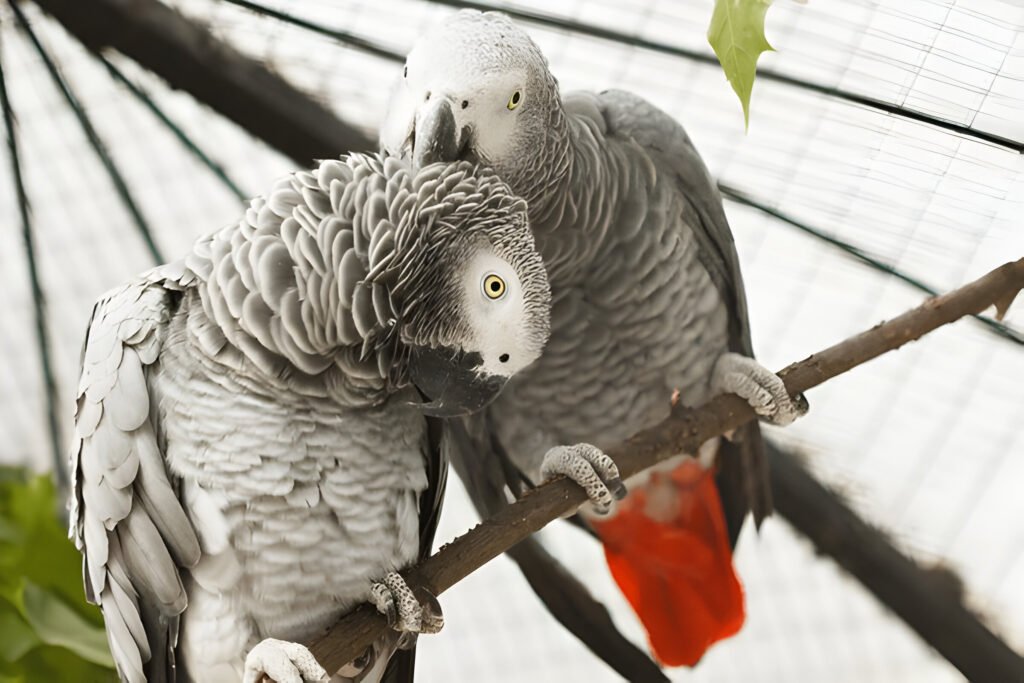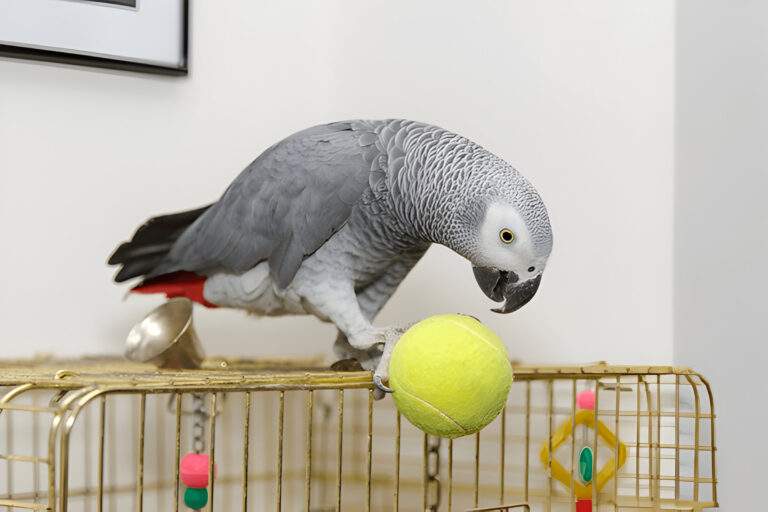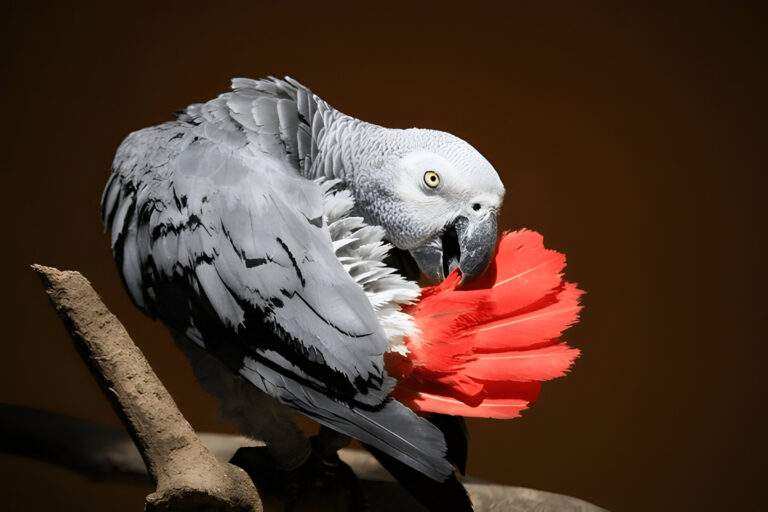The African Grey Parrot is often hailed as one of the most intelligent and charming avian companions in the world. Known for their remarkable ability to mimic human speech and their endearing personalities, African Grey Parrots have captivated bird enthusiasts for centuries. In this article, we’ll explore the intelligence of these fascinating birds, their personality traits, and the care required to keep them happy and healthy.
The Intelligence of the African Grey Parrot
Cognitive Abilities
African Grey Parrots are celebrated for their extraordinary intellectual abilities. Studies have shown that these birds can possess the intelligence of a five-year-old child, capable of understanding concepts such as shape, color, and number. They can learn to associate words with meanings, perform tasks, and even understand the context of conversations. Their problem-solving skills are also noteworthy, as they can figure out complex puzzles and learn new tricks with ease.
Speech and Mimicry
One of the most famous traits of the African Grey Parrot is its ability to mimic human speech. These parrots are capable of learning an extensive vocabulary, sometimes consisting of hundreds of words. More impressively, they can use words and phrases in the correct context, making them seem almost conversational. Their mimicry isn’t limited to words alone; African Greys can imitate various sounds, including household noises, alarms, and even other animals.
Emotional Intelligence
Beyond their intellectual capabilities, African Grey Parrots exhibit a high level of emotional intelligence. They can sense the moods of their human companions and react accordingly, displaying empathy and affection. These birds form strong bonds with their owners, often choosing one person as their primary attachment figure. Their sensitivity to emotions makes them incredibly responsive pets, but also means they can be affected by changes in their environment or routine.
Personality Traits of the African Grey Parrot
Affectionate and Social
African Grey Parrots are social creatures that thrive on interaction. They enjoy spending time with their human companions and can become very affectionate when they feel secure and loved. These parrots often seek out attention and enjoy being the center of it, making them delightful companions. However, they can also be quite selective in their affections, sometimes bonding closely with only one person in a household.
Playful and Curious
In addition to their social nature, African Grey Parrots are naturally curious and playful. They enjoy exploring their surroundings, playing with toys, and engaging in mental stimulation. Providing a variety of toys and activities is crucial to keep them entertained and prevent boredom, which can lead to behavioral issues. Their curiosity also means they need a safe environment where they can explore without getting into trouble.
Sensitive and Cautious
Despite their playful and affectionate nature, African Greys can be sensitive and cautious, especially in unfamiliar situations. They may be wary of new people, objects, or changes in their environment. It’s essential to introduce them to new experiences gradually and provide reassurance to help them feel secure. Patience and understanding are key when helping an African Grey adjust to changes.
Care Requirements for the African Grey Parrot
Diet and Nutrition
A balanced diet is vital for the health and well-being of an African Grey Parrot.Their diet should be comprised of top-quality pellets, supplemented with fresh fruits and vegetables. Pellets should make up the majority of their diet, supplemented with a variety of fresh produce to provide essential vitamins and minerals. Avoid feeding them foods high in fat, salt, or sugar, as these can lead to health problems. Fresh water should be available at all times.
Mental and Physical Stimulation
Given their intelligence, African Grey Parrots require significant mental and physical stimulation. Provide them with a range of toys, puzzles, and activities that challenge their minds. Regular interaction, such as teaching them new words or tricks, helps keep them mentally sharp. Physical exercise is also important, so ensure they have enough space to move around and opportunities to fly or climb.
Social Interaction and Attention
African Grey Parrots need regular social interaction to thrive. Spend quality time with them each day, talking, playing, and bonding. They can become lonely or anxious if left alone for extended periods, which can lead to behavioral issues such as feather plucking or aggression. Consider the time commitment before bringing an African Grey into your home, as they require consistent attention and companionship.
Health and Veterinary Care
Regular veterinary check-ups are essential to monitor the health of an African Grey Parrot. These birds can live up to 50 years or more, so long-term care is a commitment. Be vigilant for signs of illness, such as changes in appetite, behavior, or appearance, and seek veterinary care promptly if needed. A healthy environment, a balanced diet, and regular mental and physical stimulation are key to preventing health issues.
Conclusion
The African Grey Parrot is a remarkable companion, known for its intelligence, affectionate personality, and captivating abilities. However, they require dedicated care, attention, and mental stimulation to thrive. For those willing to invest the time and effort, these parrots can become beloved members of the family, bringing joy, laughter, and meaningful companionship for many years. Whether you’re a seasoned bird enthusiast or considering your first parrot, the African Grey is a bird that offers a unique and enriching experience.
FAQs:
1. What is the typical lifespan of an African Grey Parrot?
African Grey Parrots typically live between 40 to 60 years in captivity, with proper care and a healthy environment.
2. How much does an African Grey Parrot cost?
The price of an African Grey Parrot ranges from $1,500 to $3,500, depending on factors like age and breeder reputation.
3. What are common health issues in African Grey Parrots?
Common health issues include feather plucking, respiratory problems, and calcium deficiency. Regular vet check-ups and a balanced diet are essential for prevention.
4. How much space does an African Grey Parrot need?
They require a spacious cage, at least 3 feet wide, 2 feet deep, and 4 feet tall, with time outside the cage daily for exercise.
5. How do I train an African Grey Parrot?
Training involves patience and positive reinforcement. Start with basic commands, keeping sessions short and engaging.
6. Can African Grey Parrots get along with other pets?
They can coexist with other pets if introduced gradually and supervised, but they may be territorial.
For more updates on Pets, be sure to stay tuned to Red Hat Life








